If you have been successful in attracting lots of birds to your bird table, you will find it gets grubby pretty quickly and will need regular cleaning to keep it looking and smelling good and prevent the spread of diseases. Here's our guide to keeping your bird table clean, hygienic and in top condition.
Why Should You Clean a Bird Table
You may be asking why you need to bother cleaning your bird table. No one cleans the bushes your birds eat off or the grass they pick worms out of, do they? Surely birds are used to a bit of dirt, isn't it just nature?
Well, your bird table is different. If you have put out plenty of food and attracted a wide range of birds, your bird table will be a busy place. Many birds of different species will visit. They will be coming into closer contact with one another than they ever would in the wild. There may be old food hanging around going mouldy. There will be bird poop. This might get mixed in with the food.

When you consider all of this, it's easy to see why your bird table needs thorough and regular cleaning. A dirty bird table can endanger the very birds you are trying to help by spreading diseases. It's not going to look or smell great either. And failing to care for your bird table can shorten its life.
How To Clean a Bird Table
The Daily Dusting
When you put out your bird food each day, be sure to tip away any old food that is still sitting there.
Fat balls and other suet products can be left on the table and in feeders for a few days, but seed mixes and mealworms should ideally be gone in 24 hours.
If you are finding you have lots of seed mix leftover each day, you may want to decrease the amount you are putting out.
Throw your old food away in the outdoor bin, don't take it inside or put it in the compost bin.
The Monthly Scrub
Once a month, or more often if your table is jam-packed, give your bird table a good scrubbing.
Use a pair of gloves for this, gardening gloves or washing up gloves you keep just for this task. It's rare for birds to spread diseases to humans, but better to be safe.
You will need a bucket of hot water with either washing up liquid or bleach added. If using bleach, keep the solution weak: one part bleach to 10 parts water.
You will also need a stiff brush.
First, brush off any old food. Then give the table a good scrub to remove any caked-on bird food, poop or other nasties. Get into all the corners, cracks and crevices with your brush. These are where bacteria and germs like to breed.
Don't forget to clean the outside of the table too - I am sure you have seen birds perching there.

Once you are finished scrubbing, give the table a rinse with fresh water. At this stage, you could also treat the table with some pet-friendly antibacterial spray, just to be on the safe side and kill off any nasties that you might have missed. Allow it to fully dry.
Before you put your table back, take a look at the ground underneath. If it's caked with bird poop, it could be a good idea to replace it in a new position and give the ground time to recover.
The Annual Overhaul
At least once a year your table will need a full service. Autumn is an excellent time to do this.
Go through your usual monthly cleaning routine.
Then check for any loose screws and tighten them.
Check for any bits of wood that have become rough or splintered and sand them smooth.
It's also a good idea to treat or paint your table once a year. Use animal-friendly paint or wood treatment. This will help to keep the table looking its best and will also help to extend its life.
Prevention is Better Than Cure
Cleaning your bird table is essential to prevent the spread to disease in your local bird population, but there are some things you can do to make the cleaning easier.
- Don't place your table under perching/roosting sites. If you avoid putting your table under places where birds perch or roost you won't have to deal with poo that is falling onto it from above. Danger areas include trees, lampposts and overhead wires.
- Discourage bigger birds. Bigger birds - I am thinking mainly pigeons here - cause a bigger mess. Take some steps to discourage them from hanging out on your bird table, and you will have far less cleaning to do. You will probably also find you are seeing more of the smaller songbirds using the table once the pigeons have moved on too.
- Don't hang on to an old table. Wooden bird tables are out in all weathers, and you can't expect them to last forever. Over time, even with the best care, the surface of the wood will deteriorate, creating more nooks and crannies for bacteria to lurk in and becoming more difficult to clean. We would expect a bird table to last for around 5 years on average. Don't hang on to one that's past its best - replace it.
A Clean Bird Table Makes For Healthy, Happy Birds
Cleaning your bird table isn't a massive task and shouldn't take you more than half an hour a month. But it is an essential part of your care for the wildlife in your garden.
A dirty bird table can do more harm than good for local birds by spreading germs and diseases. So roll up your sleeves, get those gloves on and get scrubbing - your garden birds will thank you!
We hope you've enjoyed this article and found it useful. Do you have comments or questions? We would love to hear them. Drop us a note in the comments section below.
And if you'd like to more Garden Bird reading visit our library here.

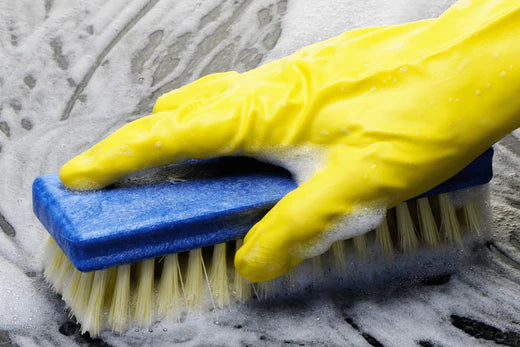

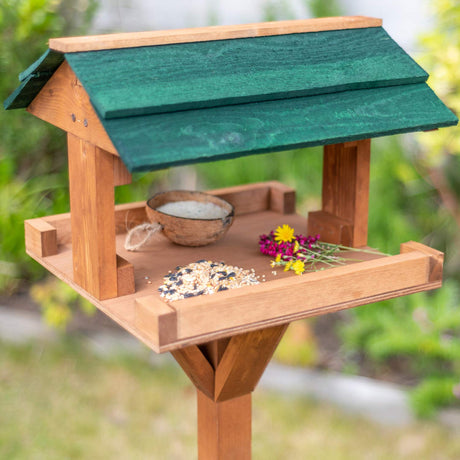
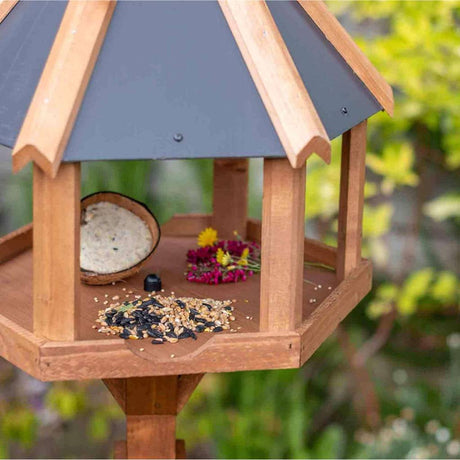
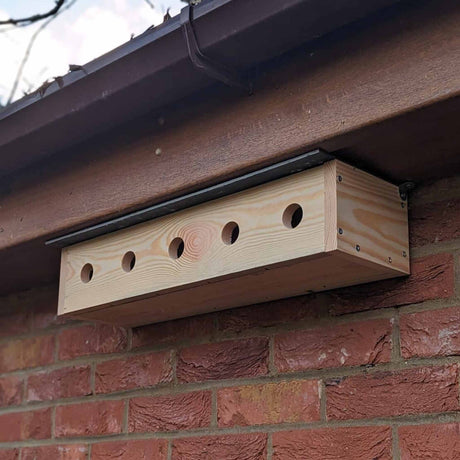
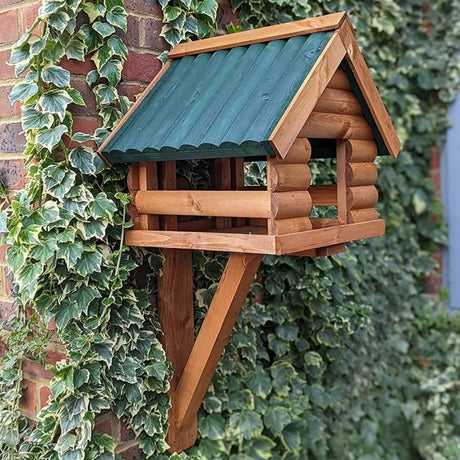
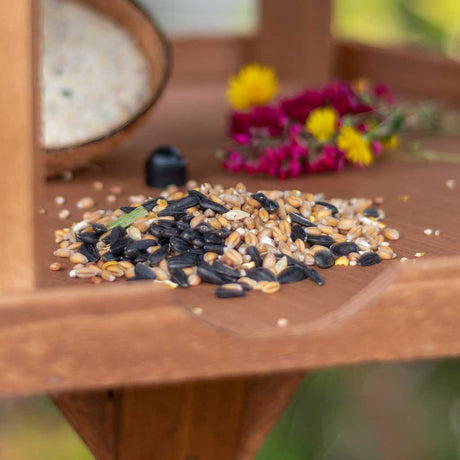
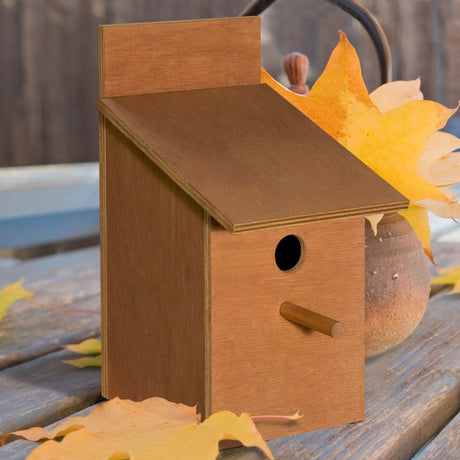

1 comment
How do you discourage pigeons and starlings? Thank you.